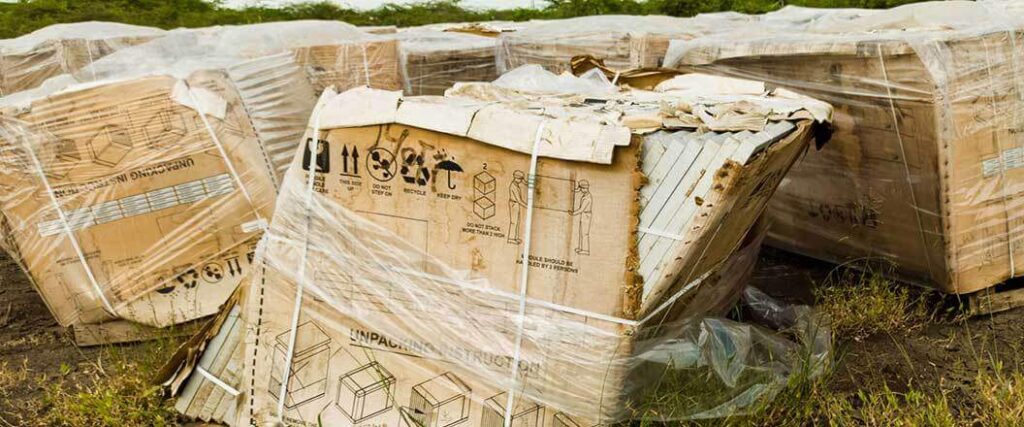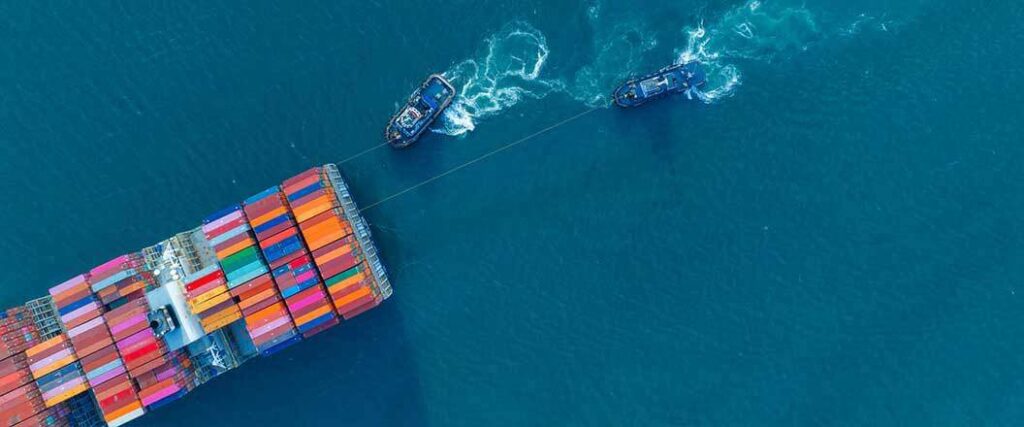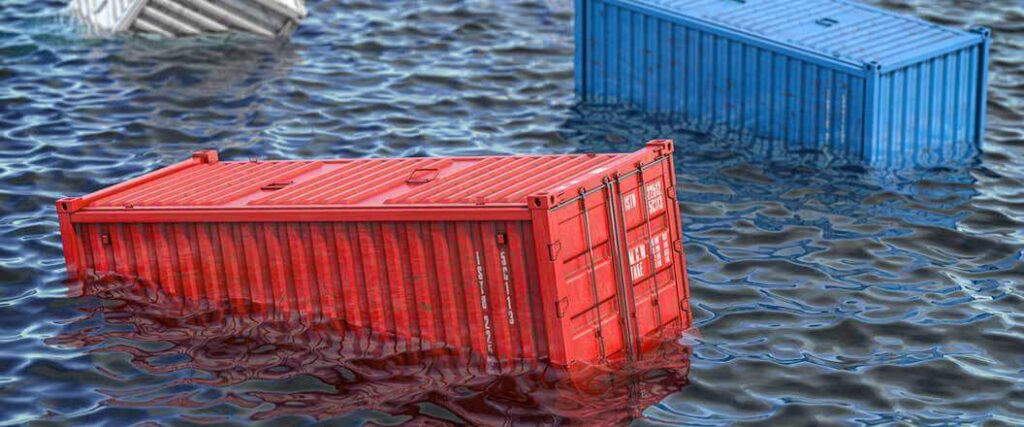For many companies, finding the right freight insurance is one of their most important tasks when shipping goods. However, there are also many businesses out there that don’t yet understand the importance of freight insurance and why it matters so much. There are many reasons why freight insurance is important and why businesses need to find policies that offer them the support and coverage that they need.
Freight insurance is a supplementary form of protection that can be purchased to protect against loss when shipping freight. Unlike carrier’s liability coverage, most freight insurance policies cover nearly all loss, rather than just loss that a carrier is responsible for. Before selecting freight insurance coverage, there are important details that should be considered.
After reading this guide, you’ll have a comprehensive understanding of everything you need to know about freight insurance.

As noted above, freight insurance is used in addition to the basic carrier policy, allowing owners of freights to add an extra layer of protection. The protection will cover against things like potential losses if the shipment goes missing during the transit process, as well as any damage that’s caused to the shipment during transit.
There are different types of freight insurance that cover different things, but the basic concept is the same: freight insurance covers loss or damage when a freight is being moved from one location to another.
When making a claim on a freight insurance policy, the policy will always come into effect if the damage or loss was caused by the error of the carrier. Things like weather-related problems or damage caused during the loading of the freight will also be covered. We’ll talk more about how much coverage is offered in the section below.
Insurance companies normally settle pretty quickly and problems between insured companies and insurers are relatively rare. One of the things that companies value most about freight insurance is the fact that it provides them with peace of mind when they’re transporting cargo over long distances. That’s something many businesses find invaluable.
Of course, it’s important to say that not all policies are the same. When you choose a policy and you’re comparing different freight insurance policy options, you should always pay attention to how much coverage you’re actually receiving for your money.
Take a close look at what’s covered by the policy and what isn’t. There are lots of consistent areas of overlap when it comes to freight insurance coverage, however. There are some basic types of coverage that you can reasonably expect most freight insurance policies to provide.
Here are some of the things that you should expect to be covered by your freight insurance policy. If your policy doesn’t cover these things, it’s probably not the best option out there. However, that’ll depend on your particular needs.
If you do make a claim on your freight insurance policy, the insurance company will pay up the amount it was insured for under your policy terms, minus your deductible amount.
There are, of course, things that are not covered by most freight insurance policies and it’s worth knowing about these too. For example, damages caused by inadequate packing is usually not covered and neither are things like damage caused by faulty goods. There might also be cases when certain materials such as certain electronics or hazardous materials aren’t covered by insurers.

There are various ways in which you can use freight insurance. Some businesses use insurance companies that they pay to cover them for all of the shipments they send with carriers, whether that’s something they do regularly or as a one off scenario. Each business will have different needs so which of those two options is right for them will depend on the requirements of the business.
Once the policy has been agreed to, you will be protected and covered in the ways outlined in the insurance policy. We’ve already discussed above what kind of coverage you can expect to receive but realistically, the kind of coverage you get will be similar to the types of coverage we outlined above. But you should be sure to read the policy and clearly understand what level of coverage you’re paying for and how you’ll be covered if something does go wrong with your shipment.
The cost of the freight insurance will depend upon a number of factors. It’s usually calculated as a percentage of the value of the shipment. For most shipments, the average cost of freight insurance is between $50 and $100. Things like size, weight, and transportation distance will also come into play. Each shipment is unique which is important to understand when receiving quotes for freight insurance.
If something goes wrong and you need to make a claim, there are a few things that will need to be done. Here’s the steps you’ll need to take in order:
Carrier liability is something that’s actually quite different from freight insurance, although they do often gets confused because many people don’t understand the difference. We’ll discuss the direct comparisons and what makes them different further down in this guide, so keep reading if that’s the information you’re looking for. For now we’re going to focus on answering the question ‘what is carrier liability?’ It’s an important question and if you’re going to be shipping goods it’s important to know the answer.
All freight shipments have some sort of limited carrier liability. The carrier determines how much liability they offer but it’s not going to be as comprehensive as a full freight insurance policy, but it also doesn’t cost any extra money on top of the amount you’re already paying for the shipping service. In most cases, carrier liability will cover your shipment up to a certain amount of money per pound of freight. This means that the coverage offered will usually be significantly less than the value of your shipment. But that will, of course, depend on what you’re shipping.
There are also certain limitations that have to be taken into account when using carrier liability to make a claim too. For example. Incidents that are considered ‘Acts of God’ won’t usually be covered by carrier liability and loading faults aren’t normally covered either. Most importantly, carrier liability only comes into play if a carrier is found directly responsible for loss of goods.
One thing that can cause confusion when you’re looking for freight insurance is the phrasing. You might notice that people use the terms freight insurance and cargo insurance, and they’re often used interchangeably. This is obviously an issue for anyone who doesn’t know the difference and wants to make sure they’re choosing the right kind of insurance policy for their needs.
There is a difference between these two types of insurance, even if the precise meaning often gets confused. Freight is the term that should be used when there’s a shipment that’s being transported via a semi-trailer on a truck or train. Cargo, on the other hand, should be the term used when goods are being transported by ship or plane, hence the phrases cargo ship and cargo plane.
For people like you who are looking to find the right insurance, you should look for freight insurance if your shipment is being transported by train or truck. But if you’re sending your goods via a plane or ship, the chances are you’ll need to look for cargo insurance instead. For goods travelling on multiple modes of transportation, many insurance companies will offer both types of coverage to ensure complete protection.

If something goes wrong with your shipment, you need to know which issues are covered by freight insurance and which are covered by freight liability. Not knowing the difference can significantly impact your chances of a successful claim and make the whole process a lot more difficult for you than it really ought to be.
As we mentioned above, all shipments come with some form of freight liability. The level of liability varies and it generally won’t be enough to cover the full value of the shipment. In order for you to make a liability claim, the damage or loss you experienced must have come about as a result of the carrier’s fault or error. If it’s not, freight insurance will not apply.
In order to make a claim against freight liability, you will need to do it within 9 months of the completion of the delivery. In order to prove carrier negligence, the least you’ll have to be able to do is provide the proof of value and proof of loss documentation. Ideally, you should be able to provide the delivery receipt as well.
Freight insurance is different because it isn’t limited according to the decisions of the carrier. Instead, as we’ve discussed in more depth above, you should be covered for the full value of your shipment, minus your policy’s deductible.
Therefore, there’s a clear difference between what can be achieved via fright liability and freight insurance. Freight insurance offers much more coverage and you’ll be more likely to be compensated for the full value of your shipment if you have a freight insurance policy. That’s far from guaranteed with freight liability.
Earned freight is the amount of money paid by the client upon the safe completion of a shipment delivery. These transportation companies face dealing with a big risk if they don’t manage to safely deliver their shipments because then that earned freight money will simply not be paid. They miss out, even when the client and owner of the shipment doesn’t because the owner already has freight insurance in place.
That freight insurance will cover the damage or loss of the shipment. But the transportation company would still take the financial hit from not safely and successfully completing the delivery. That’s why earned freight coverage is so important. It covers that potential loss of revenue and ensures the transportation company isn’t faced with big financial losses.
For independent drivers and small transportation companies, having this kind of coverage in place is vital. That potential loss of revenue could severely impact their chances of being able to function and achieve sustainability. It’s a form of liability insurance that many drivers and transportation companies now rely on heavily to ensure they don’t have to figure out how to deal with severe financial losses further down the line.
Some forms of freight insurance are provided by the carrier. This is the most common way in which clients insure their shipments and it might be how you intend to insure yours. However, you should never assume that your shipment is covered by adequate insurance. It’s best to dig deeper and to find out for sure whether or not that’s the case.
There’s always the option of choosing third party freight insurance. As the name suggests, this form of freight insurance is not provided by the carrier; it’s instead provided by a third party insurance company.
Failure to take into account the policy terms available from the carrier service you’re using can result in serious problems if you do need to make a claim later. It doesn’t take long to compare some third party freight insurance quotes, but it could end up really paying off for you if your shipment does get lost or damaged in some way. Third party insurance isn’t guaranteed to be cheaper, but it certainly doesn’t hurt to explore all options available, especially if you’re shipping fragile or high-cost items.

As we mentioned above, the average cost of freight insurance is between $50 and $100. But the exact price you’ll pay for your freight insurance will depend on a variety of factors that you’ll need to take into account. The insurance provider you choose will look at all of these things and decide how much you’ll need to pay for their coverage
The payment is usually made in one single payment that covers the shipment for the duration of its’ transportation. If you want to know how much you can expect to pay for your shipment, you should gather quotes and compare the options that are out there on the market. Each shipment is different and will have a different set of characteristics that’ll impact the cost of insuring it.
Here’s more information about the other factors that can impact the cost of your freight insurance:
How you go about finding and buying freight insurance is up to you. There are numerous ways to go about the process, depending on your needs and what you’re looking to ship. As mentioned above, lots of people choose to buy freight insurance provided by the company that’s carrying out the shipment. This is certainly the most convenient and hassle-free way to do it.
You should start the process by researching the options that are out there and gathering as much information about those policies as possible. The benefit of this is that you get to see which options provide you with the level of coverage you need and how much value they offer too. You can then compare them accurately and make an informed decision regarding which one is right for you.
Once you’ve decided which freight insurance policy is right for you, you simply need to finalize the details and sign on the dotted line to confirm it all. From the moment you do that, your shipment will be covered for the transportation process that lies ahead for it and you’ll have one less thing to worry about.
The bill of lading is the record that indicates that goods have been received on board the vehicle of transportation. As a document, it establishes an agreement between the person wanting to ship their goods and the transportation company responsible for making that happen. The bill of lading will be issued by the shipping company when they receive the goods.
Goods being carried via land, ocean and air all use a bill of lading. It serves both as an agreement between the two parties and as a receipt that’s issued by the carrier of the goods and provided to the original owner. It relates to carrier liability in that it shows the vital information about the shipment and when it was first obtained by the shipping company. It can be used as legal documentation if you choose to make a claim using carrier liability later on.
There are negotiable and non-negotiable types available. A negotiable bill of lading dictates that the freight will only be released to someone in possession of the original bill copy at the discharge port. If they don’t have a copy, the goods won’t be released.
A non-negotiable bill of lading names a specific receiver who the freight will be delivered to. That person simply needs to show a form of ID when they’re picking up the freight. Now we’ve covered the bill of lading and some of the key things you need to know about it, we’re going to sum up the purpose of bill of lading documents:

There are various things that you should try to take into account when deciding exactly how much freight insurance you need. It’s important to consider the value of your freight and how much you would need to recover in the way of losses if the shipment was damaged or lost on its journey. Be sure to have a clear and accurate valuation of your shipment before seeking freight insurance.
You should also take into account other risks that might pose a threat to your shipment. If you’re shipping your freight through dangerous routes or routes that are associated with losses and damage, you might want to take extra care and think about how much insurance you might want. When you have more cover, you’ll have greater peace of mind.
Each freight is unique, so it’s up to you to make sure that you’re fully informed about the nature of the shipping process and the risks your freight will face. That, combined with your valuation, will help you to make an informed decision regarding how much freight insurance you need.
If you’re looking to transport a large number of goods at once, you’ll probably want to use a truckload shipping method. This is when an entire semi-trailer is used and filled up with the goods that are being transported, and it’s usually dedicated to a single client. There are lots of benefits associated with choosing truckload shipping over the alternative solutions.
The main benefits associated with truckload freight are that the freight tends to reach its destination quicker because of faster transit times. These journeys tend to be less risky for your freight as well. And, perhaps most importantly for many people, the shipping rates are usually more favorable for this type of shipping.
From an insurance perspective, it can be a very good freight option. Because the risks are lower and the truckload is dedicated to your freight, the premiums tend to be lower. That’s something to take into account, for sure.
Now that you know a lot about freight insurance, how to get it and how much it’s likely to cost you, it makes sense to look at the core benefits of choosing freight insurance. After all, you could always take the carrier liability and leave it at that. It’s what some people choose to do, but it does mean you’ll miss out on the specific benefits that come with having a freight insurance policy in place.
You’ll only get to benefit from these things if you choose your own insurance policy that’s tailored to your needs and the demands of your work. If you don’t do that, you’ll run into problems sooner or later if the carrier liability doesn’t cover you completely when something goes wrong.
So, what are these benefits and why should you care? You can find out about them below:
So, if you weren’t sure about the worth of freight insurance and whether you could really benefit from it, hopefully those 5 benefits will have cleared that up for you. Of course, your situation is unique to you, so before deciding whether or not you need freight insurance, weigh these benefits up against any negatives and decide whether freight insurance is what you need.

There are a few things you should look for when it comes to choosing freight insurance. The first is the experience of the insurance provider you choose. If they’ve been offering insurance policies to people like you for a long time, it’ll be easier to put your trust in them.
You should also look at the level of coverage they offer and how much value you’ll get for your money by using their services. If you can, talk to other people who’ve used these insurance providers and ask them about their experiences. It’s one of the best ways to really get a feel for how a company treats its customers.
At Freight Insurance Coverage, we can automatically have cargo insurance applied to any shipment transported through our carriers and factored into your quote for easy viewing. While many carriers do their best to load and unload freight carefully, accidents can happen at any time.
Cargo insurance will ensure you have the protection you need for your freight. In addition to our insurance coverage, you’ll also have access to a variety of carriers that can ship your freight when you choose us as your 3PL.
Some of the shipping carriers we partner with provide services for:
Need more information? Fill out our contact form or give us a call at (866) 975-0749 to speak to an agent directly.
Freight Insurance Coverage
315 NE 14th Street #4122
Ocala, FL 34470